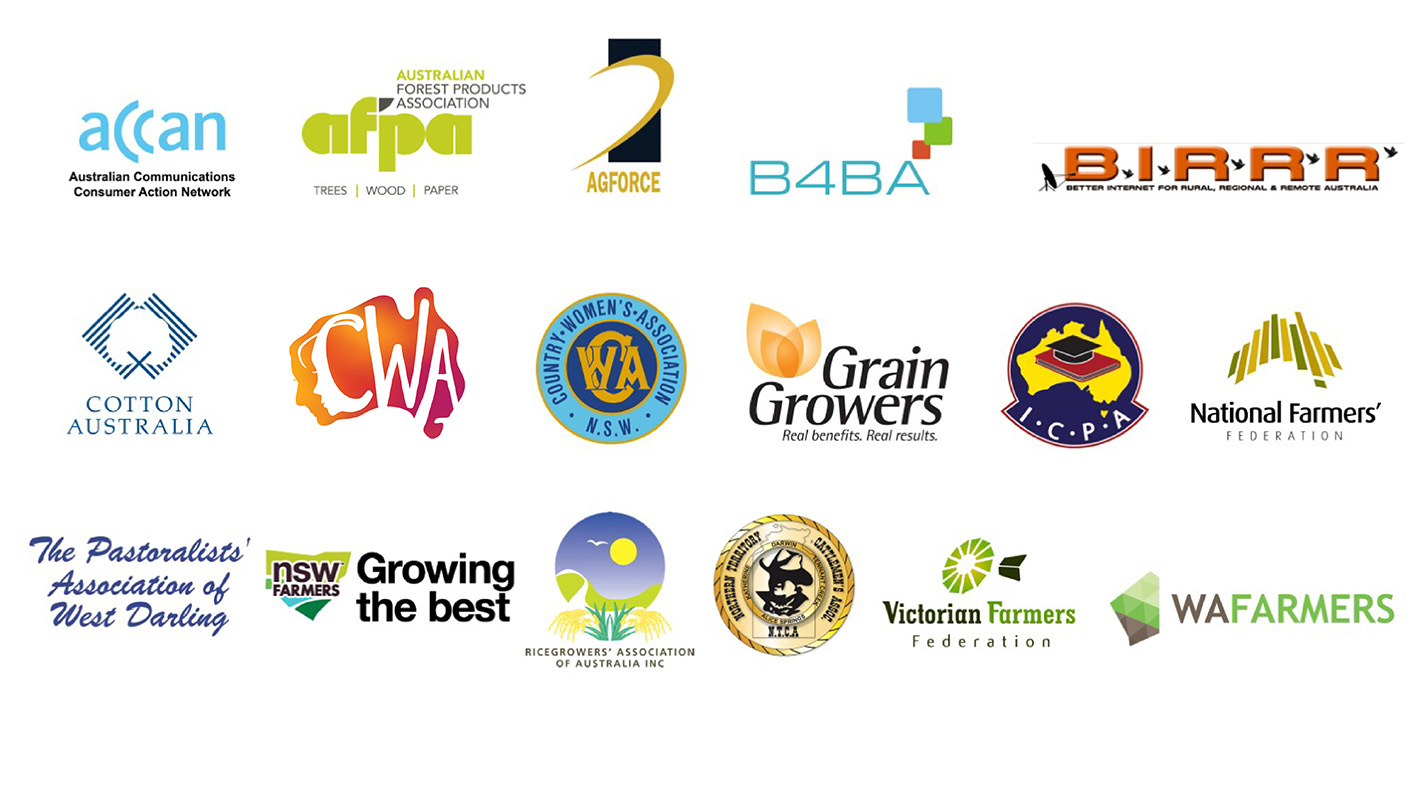- Details
 Regional, rural and remote Australians will be better protected if recommendations put forward by the 2018 Regional Telecommunications Review are adopted, according to Australia’s peak body representing telecommunications consumers, ACCAN.
Regional, rural and remote Australians will be better protected if recommendations put forward by the 2018 Regional Telecommunications Review are adopted, according to Australia’s peak body representing telecommunications consumers, ACCAN.
The report recognises the essential nature of communications in everyday life, and the necessity of improving access to telecommunications infrastructure, consumer protections and digital literacy for regional, rural and remote Australians.
Read more: ACCAN calls on Government to adopt Regional Review recommendations
- Details
Australian Communications Consumer Action Network (ACCAN) has today launched Australia’s first independent information resource for telecommunications products suitable for people with disability.
Known as the Accessible Telecoms project, the interactive website and call centre will be the much needed one-stop shop for information about the accessibility features of both mainstream and assistive telecommunications equipment suitable for people with disability. It is made possible thanks to a National Readiness grant from the National Disability Insurance Agency (NDIA).
As Australia’s peak body representing communications consumers, ACCAN has been advocating for a service that will eliminate the growing information vacuum about equipment and services suitable for people with disability in our increasingly digitally connected society.
- Details
The Australian Communications and Media Authority (ACMA) recently undertook a Review of the Emergency Call Service (ECS) Determination. The ECS Determination imposes requirements on carriers, carriage service providers and emergency call persons regarding access to the emergency call service. The purpose of this Review was to consider whether the ECS Determination is still relevant and whether its obligations remain consistent and robust. This Review was recommended by the Department of Communications and the Arts, in its report into the Triple Zero service disruptions in May 2018.
ACCAN made a submission to the ACMA’s Review, in which we provided recommendations about how the emergency call service could be made more accessible and more reliable.
Read more: Telecommunications (Emergency Call Service) Determination (2009)
- Details
 The Regional, Rural and Remote Communications Coalition (RRRCC) welcomes the recommendations of the Joint Standing Committee on the National Broadband Network’s inquiry into the rollout of the NBN in rural and regional areas.
The Regional, Rural and Remote Communications Coalition (RRRCC) welcomes the recommendations of the Joint Standing Committee on the National Broadband Network’s inquiry into the rollout of the NBN in rural and regional areas.
In December 2017, the bipartisan committee announced that it would conduct a review of the NBN, focusing on the capacity and reliability of NBN satellite, fixed wireless and fixed line networks.
Read more: Bush communications coalition welcomes report into rural and regional NBN
- Details
 The Regional, Rural and Remote Communications Coalition (RRRCC) welcomes the proposals flagged in a Department of Communications and the Arts consultation paper which focuses on the reliability of telecommunications services.
The Regional, Rural and Remote Communications Coalition (RRRCC) welcomes the proposals flagged in a Department of Communications and the Arts consultation paper which focuses on the reliability of telecommunications services.
Read more: RRRCC supports steps to improve reliability of telco services
- Details
 The Australian Communications Consumer Action Network (ACCAN) welcomes today’s release of the Federal Government’s report on Complaints Handling and Consumer Redress in the telecommunications industry.
The Australian Communications Consumer Action Network (ACCAN) welcomes today’s release of the Federal Government’s report on Complaints Handling and Consumer Redress in the telecommunications industry.
As Australia’s peak body representing telecommunications consumers, ACCAN has argued that better regulation in telecommunications is needed to safeguard the interests of consumers. The Government’s report acknowledges this need.
Read more: ACCAN welcomes new complaint powers for telco customers
- Details
 The Regional, Rural and Remote Communications Coalition (RRRCC) has welcomed the launch of the new Sky Muster Plus service, that will see essential internet uses, such as browsing, email and software updates, exempt from monthly data allowances.
The Regional, Rural and Remote Communications Coalition (RRRCC) has welcomed the launch of the new Sky Muster Plus service, that will see essential internet uses, such as browsing, email and software updates, exempt from monthly data allowances.
Read more: Bush communications coalition welcomes Sky Muster game change
- Details
Throughout our lives, we accumulate a variety of assets. In the past, these have traditionally included things such as houses, cars, finances and other tangible possessions. These assets are considered when drawing up a will in the event of our passing.
Read more: How to prepare your digital legacy
Write comment (0 Comments)- Details
ACCAN has made a brief submission to the Senate Inquiry into Australian content on broadcast, radio and streaming services. We highlighted the value of Australian content for people with disability in particular, and outlined that everyone should have access to Australian content.
In our submission, ACCAN explained that some accessibility features are readily included on Australian content, whereas others aren’t available (or aren’t consistently available). This is because there are no clear legislative requirements or protections to ensure access to Australian programming across all platforms.
Read more: Australian content on broadcast, radio and streaming services
- Details
 The Australian Communications Consumer Action Network (ACCAN) is frustrated to see that complaints to the Telecommunications Industry Ombudsman (TIO) have increased overall in the annual report. While we acknowledge the trend is beginning to change direction1, it is important to note this is the third consecutive year that consumers have voiced discontent with the services provided by their telco. This demonstrates a clear need for improved customer service and consumer protections.
The Australian Communications Consumer Action Network (ACCAN) is frustrated to see that complaints to the Telecommunications Industry Ombudsman (TIO) have increased overall in the annual report. While we acknowledge the trend is beginning to change direction1, it is important to note this is the third consecutive year that consumers have voiced discontent with the services provided by their telco. This demonstrates a clear need for improved customer service and consumer protections.
Read more: Telcos Need to Improve Customer Service, TIO Complaints Show
- Details
ACCAN has made a submission to the Parliamentary Joint Committee on Intelligence and Security (PJCIS). The Assistance and Access Bill seeks to amend current legislation to facilitate access by law enforcement agencies to the content of stored communications, such as texts, emails and call data.
ACCAN has expressed serious concerns about the Bill, alongside many other Australian and global stakeholders, including those from the telecommunications industry, technology sector, human rights and consumer organisations. In its current form the Bill will provide access to consumers’ data without their knowledge or adequate judicial oversight. The Bill will act to weaken encryption systems by forcing technology companies, device manufacturers, and other relevant parties, to build into their software and systems an entry-point (or backdoor) to encrypted data.
Read more: Telecommunications and Other Legislation Amendment (Assistance and Access) Bill 2018
- Details
The Federal Government is developing reforms to give consumers greater access to and control over their data held by companies they do business with, such as banks, energy companies and telcos. The Consumer Data Right will allow customers to transfer their data to different providers to see if those providers offer products that would be more suitable, at a better price.
For consumers, greater use and control of their data could provide significant benefits through helping them to find services they need at reduced prices.
In this consultation the Australian Competition and Consumer Commission (ACCC) asked for comments on the principles that will underpin the drafting of rules for the consumer data right, prior to the draft rules being released. The rules will provide detail about how the consumer data right is to be implemented, privacy protections for consumers and the obligations of businesses. ACCAN will comment further on the consumer data rights when the draft rules are released later this year.
Read more: ACCC Consumer Data Right Rules Framework Consultation
